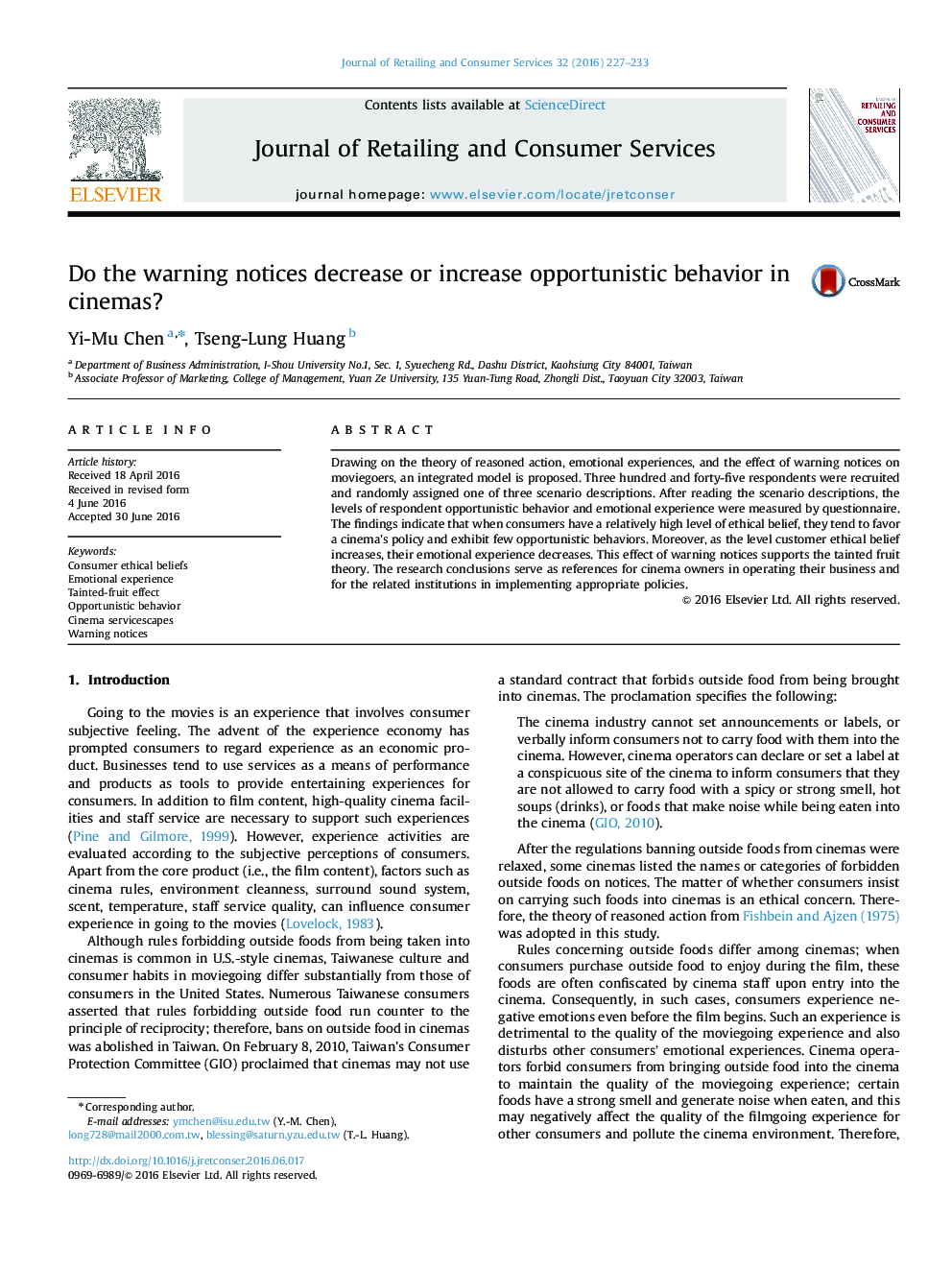| Article ID | Journal | Published Year | Pages | File Type |
|---|---|---|---|---|
| 7433832 | Journal of Retailing and Consumer Services | 2016 | 7 Pages |
Abstract
Drawing on the theory of reasoned action, emotional experiences, and the effect of warning notices on moviegoers, an integrated model is proposed. Three hundred and forty-five respondents were recruited and randomly assigned one of three scenario descriptions. After reading the scenario descriptions, the levels of respondent opportunistic behavior and emotional experience were measured by questionnaire. The findings indicate that when consumers have a relatively high level of ethical belief, they tend to favor a cinema's policy and exhibit few opportunistic behaviors. Moreover, as the level customer ethical belief increases, their emotional experience decreases. This effect of warning notices supports the tainted fruit theory. The research conclusions serve as references for cinema owners in operating their business and for the related institutions in implementing appropriate policies.
Related Topics
Social Sciences and Humanities
Business, Management and Accounting
Marketing
Authors
Yi-Mu Chen, Tseng-Lung Huang,
